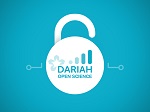|
|
|
Programme > Public lecture - James Pustejovsky
James PustejovskyTJX/Feldberg Chair of Computer Science, Brandeis University in Waltham, Massachusetts Public LectureWhen: Wednesday, December 6th, 18:00–19:30 The Role of Semantics in Lexical Data ModelingIn this class, I discuss the methodology at play when designing or identifying the conceptual inventory that lexicographers use when analyzing the meaning of a specific language domain along with its associated corpora. I address the importance of lexical semantic modeling in creating a coherent abstraction of a linguistic phenomenon. I will use two use cases that demonstrate the interplay between semantic analysis and corpus data when working towards defining a data model, namely the domains of temporal and spatial semantic modeling.
James Pustejovsky is the TJX Feldberg Chair in Computer Science at Brandeis University, where he is also Chair of the Linguistics Program, Chair of the Computational Linguistics MA Program, and Director of the Lab for Linguistics and Computation. He received his B.S. from MIT and his Ph.D. from UMASS at Amherst. He has worked on computational and lexical semantics for twenty five years and is chief developer of Generative Lexicon Theory. Since 2002, he has been working on the development of a platform for temporal reasoning in language, called TARSQI (www.tarsqi.org). Pustejovsky is chief architect of TimeML and ISO-TimeML, a recently adopted ISO standard for temporal information in language, as well as ISO-Space, a specification for spatial information in language. James Pustejovsky has authored and/or edited numerous books, including Generative Lexicon (MIT, 1995), The Problem of Polysemy (CUP, with B. Boguraev,1996), The Language of Time: A Reader (OUP, with I. Mani and R. Gaizauskas, 2005), Interpreting Motion: Grounded Representations for Spatial Language (OUP, with I. Mani, 2012), and Natural Language Annotation for Machine Learning, O’Reilly, 2012 (with A. Stubbs). Recently, he has been developing a modeling framework for representing linguistic expressions and interactions as multimodal simulations. This platform, VoxML/VoxSim, enables real-time communication between humans and computers for joint tasks. Recent books include: Recent Advances in Generative Lexicon Theory, (Springer, 2013); The Handbook of Linguistic Annotation, Springer, 2017 (edited with Nancy Ide), and two textbooks, The Lexicon, Cambridge University Press, 2018 (with O. Batiukova), and A Guide to Generative Lexicon Theory, Oxford University Press, 2019 (with E. Jezek). He is presently finishing a book on temporal information processing for O’Reilly with L. Derczynski and M. Verhagen. |



